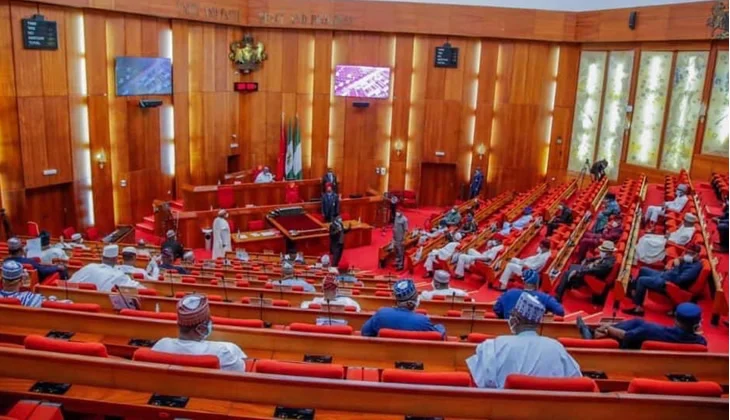
The National Council of State on Thursday approved the nomination of Professor Joash Ojo Amupitan (SAN) from the North-Central as the new Chairman of the Independent National Electoral Commission (INEC).
President Tinubu’s media aide, Bayo Onanuga disclosed this in a statement on Thursday.
According to him, Tinubu presented Amupitan as the nominee to fill the vacant position, following Professor Mahmood Yakubu’s exit. Yakubu served from 2015 till October 2025.
“President Tinubu told the council that Amupitan is the first person from Kogi, North-Central state, nominated to occupy the position and is apolitical.
“Council members unanimously supported the nomination, with Governor Ahmed Usman Ododo describing Amupitan as a man of integrity.
“In compliance with the constitution, President Tinubu will now send Amupitan’s name to the Senate for screening”.
Thefrontrank reports Amupitan, a professor of law, born April 25, 1967, is a kinsman and lawyer to Senator Dino Melaye.
Amupitan, from Ijumu Local Government Area of Kogi state, is a legal scholar with more than 34 years of academic and professional experience.
He began his career as an assistant lecturer at the University of Jos in 1989 and rose to become a professor of law in 2008.
He has served as head of the department of public law, dean of the faculty of law, and chairman of the committee of deans and directors at the University of Jos, where he is currently Deputy Vice Chancellor (Administration).
He was also a member of the governing councils of the Nigerian Institute of Advanced Legal Studies and the Council of Legal Education.
In December 2023, he was appointed Pro-chancellor and Chairman of the Governing Council of Joseph Ayo Babalola University (JABU).
Amupitan holds a Bachelor of Laws degree (LL.B) from the University of Jos, obtained in 1987, and was called to the Nigerian Bar in 1988.
He earned his master’s degree in 1993 and a Ph.D in 2007, both from the same institution.
He was conferred the title of SAN in 2014.
His areas of expertise include corporate governance, law of evidence, corporate law, and privatisation law.


